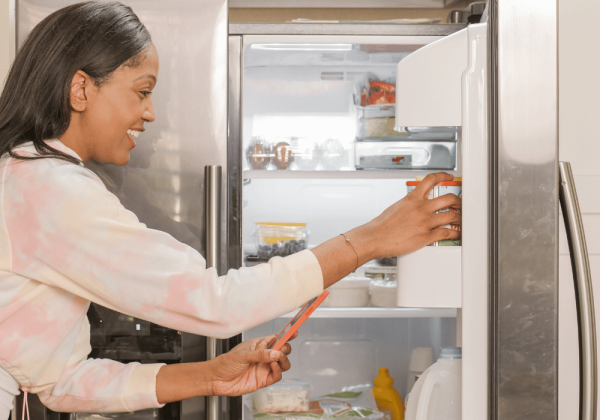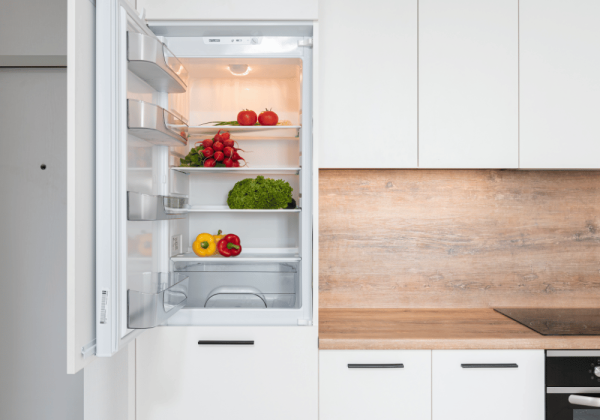When your refrigerator stops cooling, it can turn from an inconvenience into a full-blown crisis in no time, spoiling food and threatening to disrupt your daily routine. Before panic sets in, take a deep breath. Understanding why your fridge has stopped cooling can help you determine whether you can fix it yourself or if it’s time to call in the professionals. Here’s a comprehensive guide to diagnosing and solving the most common refrigerator cooling issues.
1. Check the Power Source
 It may seem evident, but the initial step is to confirm that your refrigerator is correctly plugged in and that the power source is operational. A tripped circuit breaker or a blown fuse could be responsible. Ensure that other appliances are functioning, which would indicate that the issue resides within the refrigerator itself if they are.
It may seem evident, but the initial step is to confirm that your refrigerator is correctly plugged in and that the power source is operational. A tripped circuit breaker or a blown fuse could be responsible. Ensure that other appliances are functioning, which would indicate that the issue resides within the refrigerator itself if they are.
2. Inspect the Thermostat
An incorrectly adjusted thermostat can often be the cause of a fridge not cooling properly. It might have been inadvertently turned to the wrong setting. Verify that the thermostat is set to the correct temperature: the refrigerator should be at or below 40°F (4°C), and the freezer should be at 0°F (-18°C).
3. Unblock the Vents
Airflow is crucial for a refrigerator to cool properly. If the vents inside are blocked by food containers or bags, it can prevent cold air from circulating through the fridge. Rearrange your items to ensure that air can move freely.
4. Clean the Coils
Over time, the condenser coils located on the back or bottom of your refrigerator can accumulate dust, hair, and debris, impeding their ability to dissipate heat effectively. This buildup may cause your refrigerator to operate less efficiently, potentially resulting in cooling issues. To address this, unplug your refrigerator, locate the coils, and clean them carefully using a coil brush or vacuum attachment.
5. Evaluate the Door Seals
If your refrigerator’s door seals (gaskets) are loose or damaged, warm air can sneak in, making it hard to keep things cool. Check the seals for any wear or damage. Here’s an easy test: close the door on a piece of paper; if it slides out easily, it’s time to replace those seals.
6. Consider the Evaporator Fan
The evaporator fan moves cold air from the freezer to the fridge. If it’s not working, your fridge won’t cool right. Try listening for the fan; if you can’t hear it or it sounds like it’s struggling, there might be something blocking it, or the fan motor might need replacing.
7. Dealing with a Frosted Evaporator Coil
A frosted-over evaporator coil can also be a reason why your fridge is failing to cool. This issue is often caused by a faulty defrost system. If your freezer is cold but the fridge is warm, this could be the problem. Defrosting the coil can temporarily solve the issue, but you’ll likely need a professional to address the underlying problem.
8. When to Call the Professionals
If you have completed these troubleshooting steps and your refrigerator is still not cooling, it may be advisable to contact a professional appliance repair technician. Complex issues such as refrigerant leaks, electronic control board malfunctions, or a faulty compressor necessitate specialized expertise and equipment.
Prevention Tips
- Maintain Regular Cleaning: Keep the condenser coils clean and ensure that the interior vents are never blocked.
- Monitor Door Seals: Check and clean the door seals regularly to prevent air leaks.
- Avoid Overloading: While a full fridge retains cold better than an empty one, overloading it can block vents and restrict airflow.
- Keep it Covered: Cover all food items. Uncovered foods release moisture and make the compressor work harder.
 Your refrigerator is one of the most important appliances in your home, and when it stops cooling, it can lead to wasted food and added stress. Understanding the potential reasons behind cooling issues can empower you to solve simple problems or make an informed decision when calling a professional. Regular maintenance and being mindful of how you use your fridge can prevent many common cooling issues, keeping your fridge running smoothly for years to come.
Your refrigerator is one of the most important appliances in your home, and when it stops cooling, it can lead to wasted food and added stress. Understanding the potential reasons behind cooling issues can empower you to solve simple problems or make an informed decision when calling a professional. Regular maintenance and being mindful of how you use your fridge can prevent many common cooling issues, keeping your fridge running smoothly for years to come.
